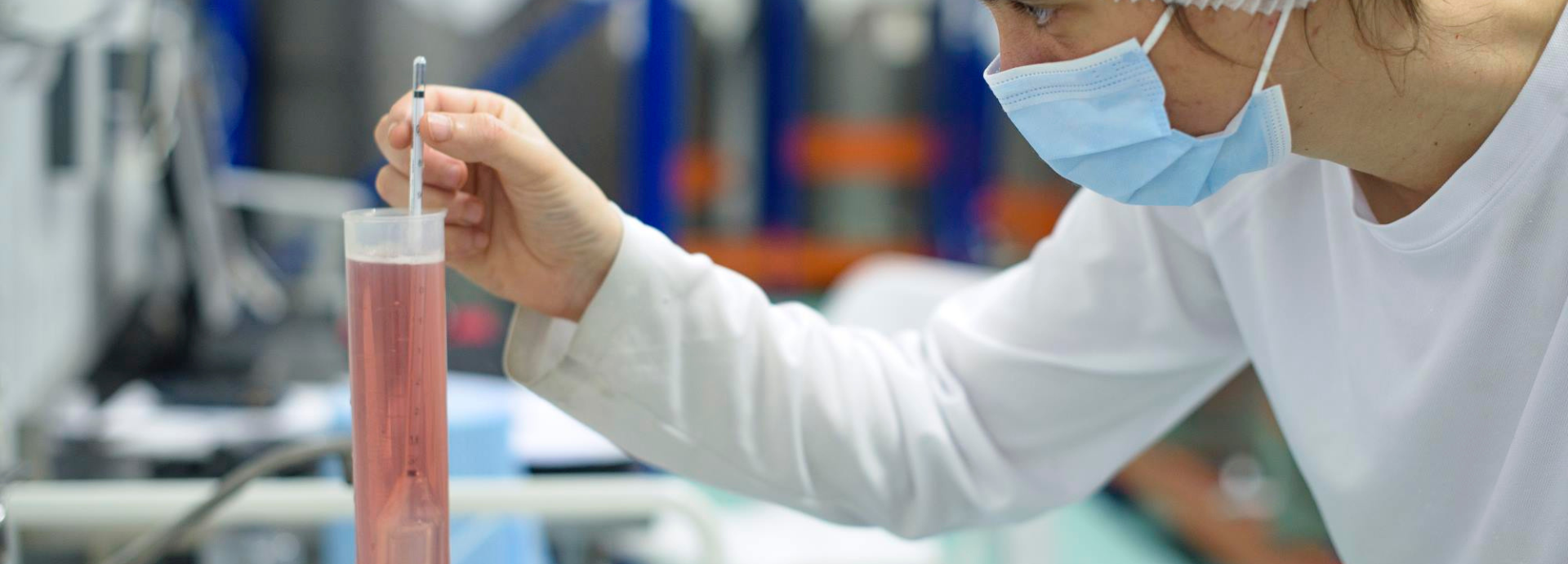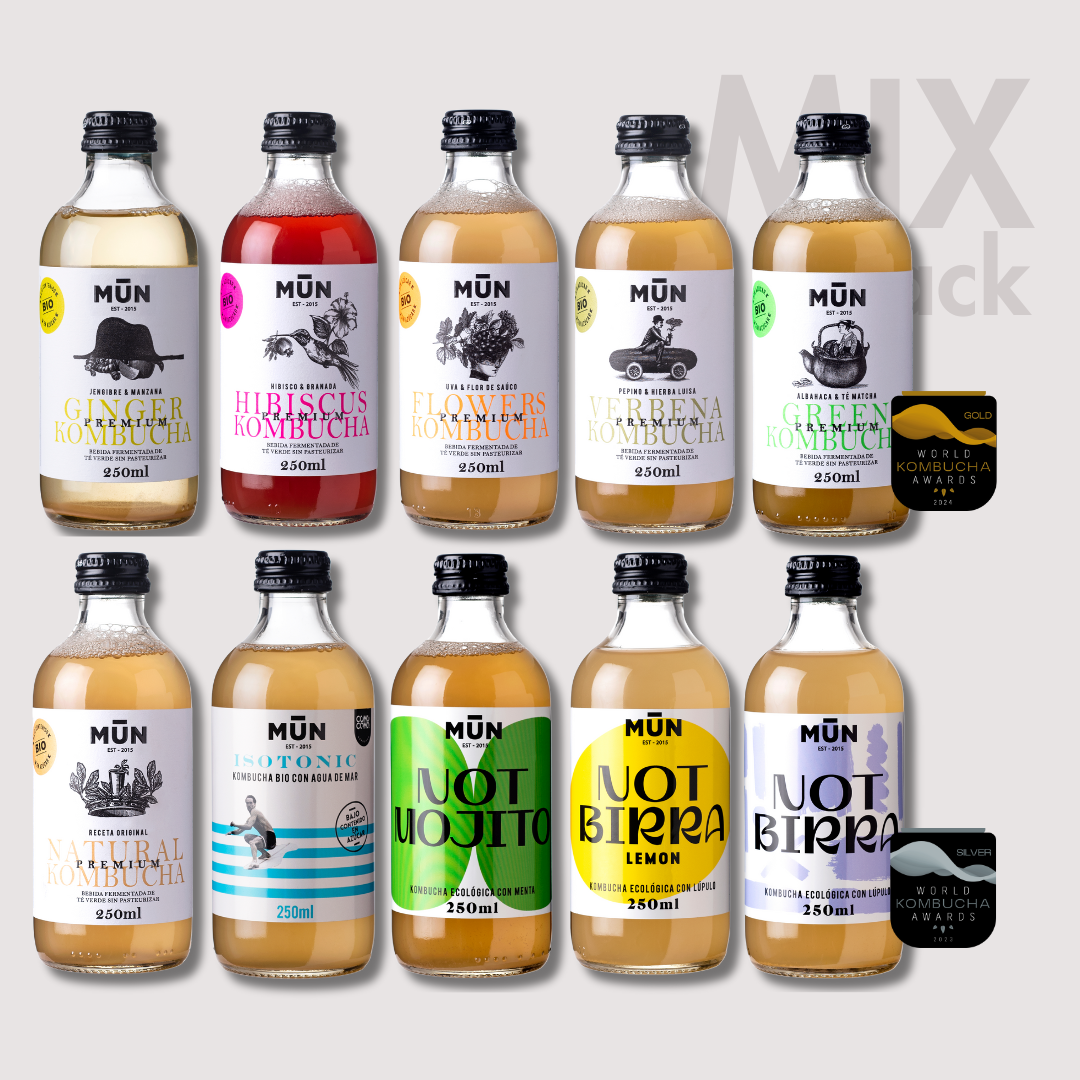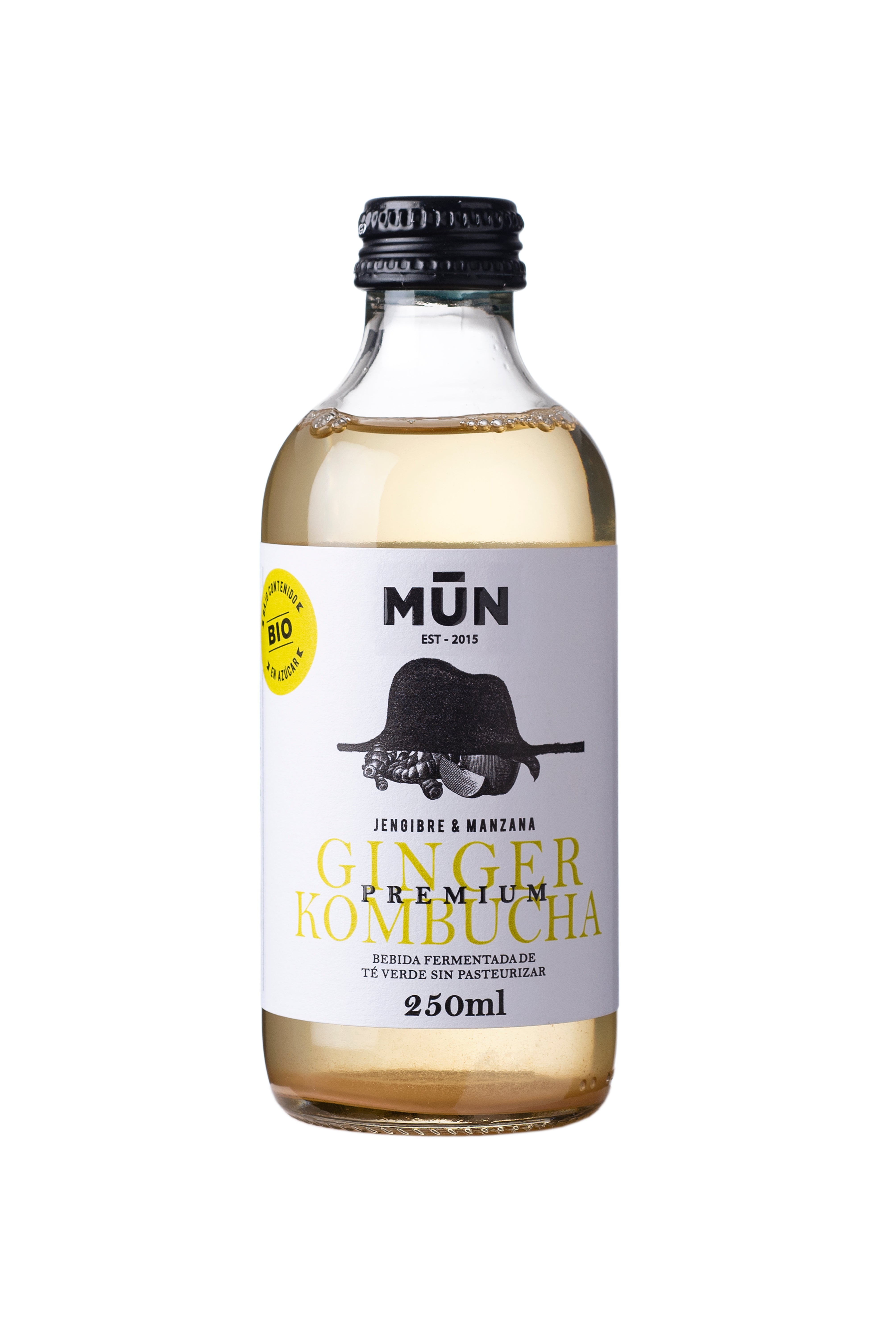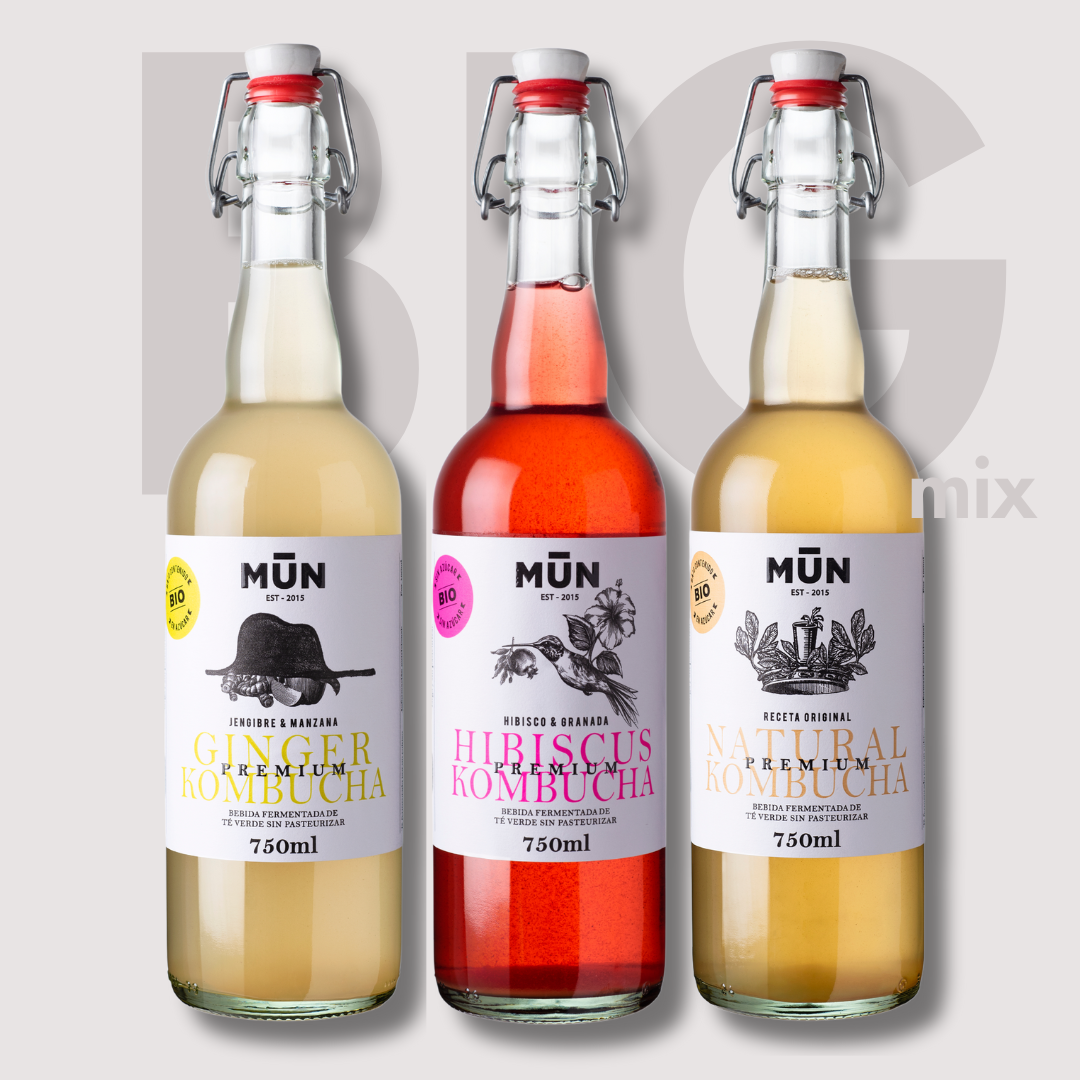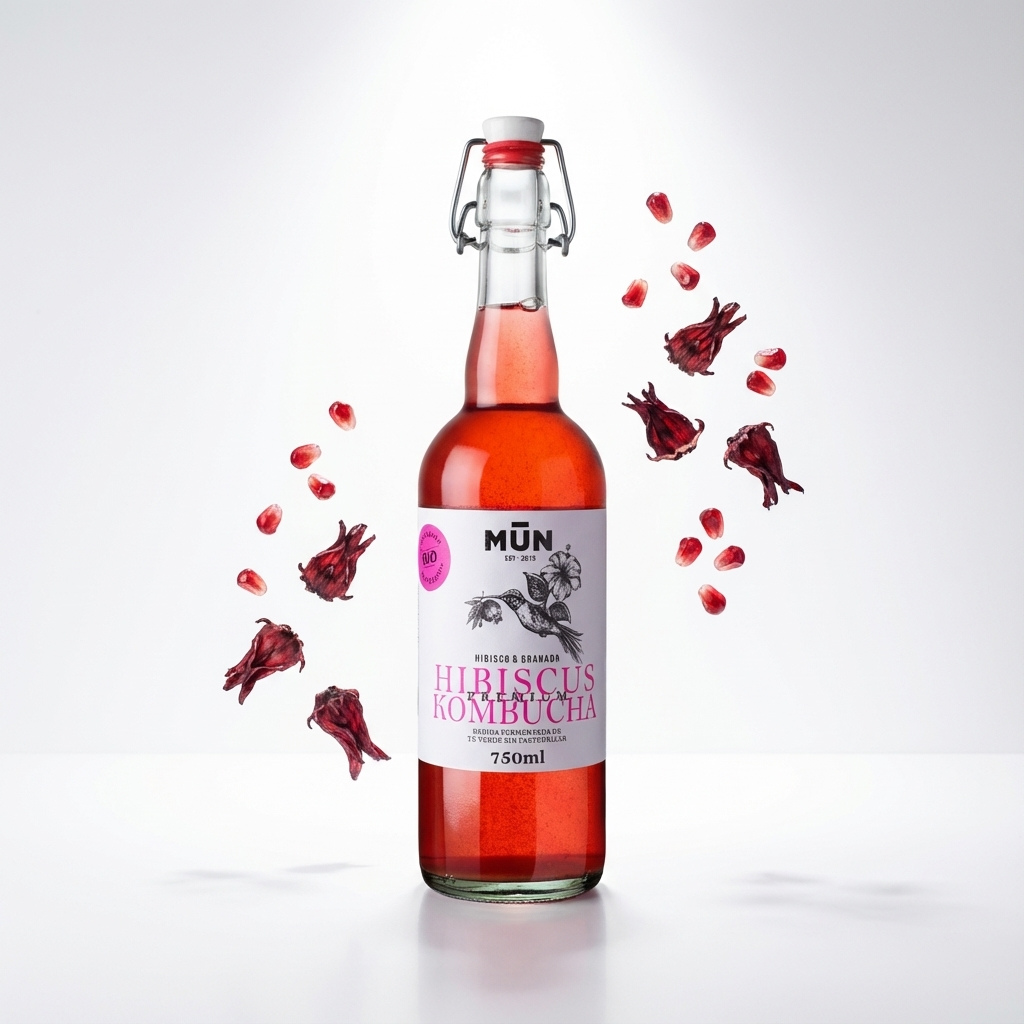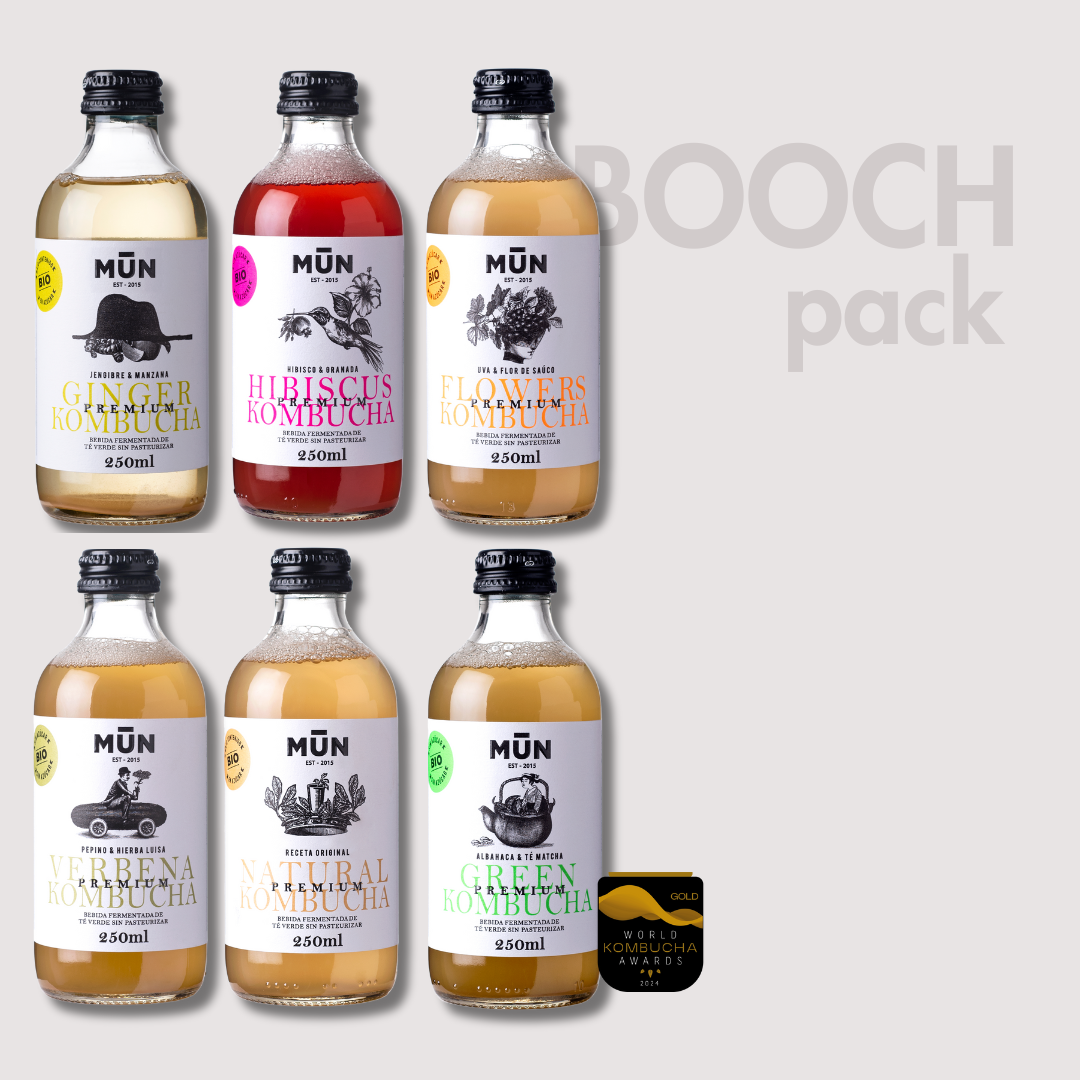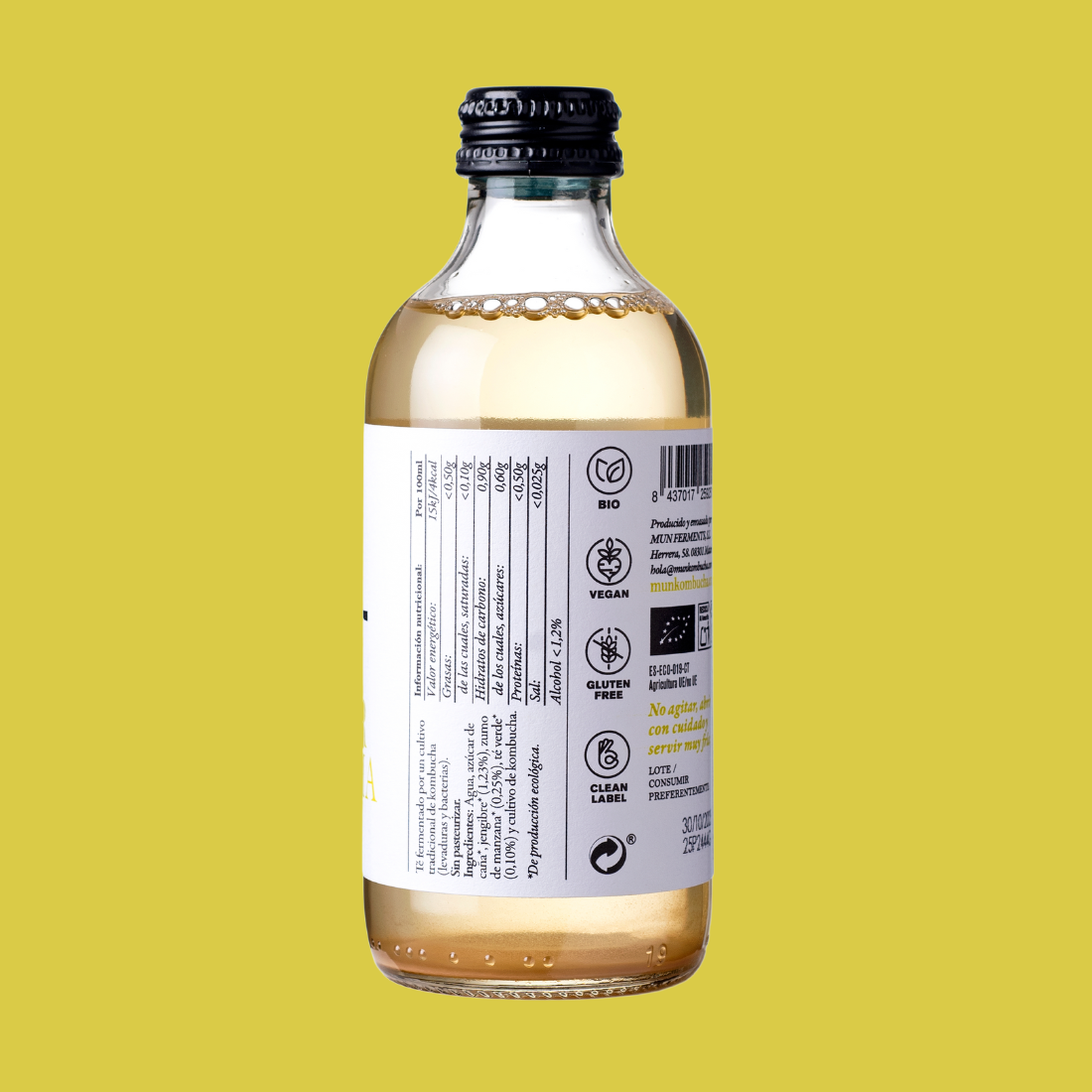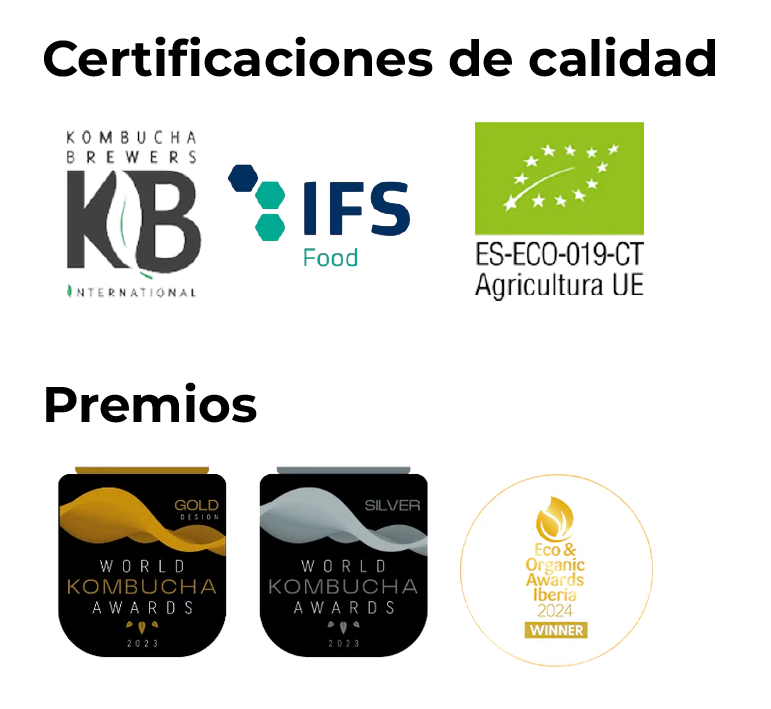Does kombucha have alcohol?
If you have asked yourself if kombucha contains alcohol, the answer is yes, but with nuances. To do this, we have to give you background information. Kombucha drink is a fermented drink . But unlike the fermented drinks that we all know such as wine, beer, cava, cider, etc., which contain only yeasts, kombucha is fermented by a colony of yeasts and bacteria. This nuance is very important in the production of alcohol.
We go into detail. Yeasts are specialists in transforming sugar into ethanol and carbon dioxide. Well, in fact, this transformation is a little more complicated. Common sugar is made up of sucrose (or sucrose). Sucrose is a disaccharide made up of glucose and fructose . The first step that yeasts take when confronted with a sucrose molecule is to secrete an enzyme called invertase, which is capable of breaking the bond that unites a glucose molecule with a fructose molecule. Once sucrose has been transformed into glucose and fructose, the yeasts can convert it into ethanol, carbon dioxide and some organic complexes, which usually give aroma.
Kombucha has alcohol, less than one degree, but if it did not have bacteria it could reach up to 5º
In this way, in a drink rich in sugar that only contains yeast , alcohol will be obtained at a rate of 1º of alcohol for every 17 grams of sugar . Kombucha recipes usually contain between 50 and 100 grams of sugar per liter. If kombucha only had yeasts, the alcoholic strength of kombucha could reach 5º!
Here is the importance of bacteria in kombucha. Bacteria cannot metabolize sucrose, but they can metabolize glucose and fructose. It is for this reason that bacteria live in symbiosis with yeasts, because without them they would not have food available. From glucose and fructose, bacteria produce organic acids . And these organic acids depend on the family to which the bacteria belong. In this way, acetic bacteria make acetic acid (vinegar) from the alcohol made by yeast. Lactic acid bacteria make lactic acid from glucose and fructose. Bacteria of the gluconobacter genus transform sugar into acetic acid.
In summary, yeasts metabolize sugar into glucose and fructose and then transform it into alcohol and CO2. Throughout this process, bacteria take advantage of the appearance of glucose and fructose, and later alcohol, to be able to transform it into organic acids.
A long fermentation in kombucha reduces the alcohol level
With everything we have explained above, the first microorganisms that act in kombucha are yeasts, since they are the only ones that can begin to process sucrose. In addition, yeasts act faster than bacteria. What this means is that at the beginning of fermentation the sugar is transformed only into alcohol. Until the bacteria have enough food (glucose, fructose and alcohol) they will not be able to start producing organic acids.
If we measured the alcohol level during the fermentation of kombucha we would see how in the first days the alcoholic level rises due to the influence of the yeasts, and from the moment the bacteria are activated, the alcoholic level begins to decrease.
Avoid kombuchas with a very short fermentation time! In them, you will only find sugar and alcohol. At MUN KOMBUCHA, aware of the influence that food can have on our health, we carry out a long fermentation of the kombucha for up to 30 days to give it enough time for the reactions to occur that end up converting the sugar into organic acids.
How much alcohol does kombucha contain?
Well, it will depend on the fermentation process. In general it is usually around one degree. The regulations classify non-alcoholic drinks as those between 0.5º and 1.2º. Without exceeding this limit, it is not necessary to indicate the presence of alcohol, since it is not considered an alcoholic beverage. At MUN KOMBUCHA we label below this 1.2º.
For a kombucha to have 0.5º, it must have had a very short fermentation or a low amount of sugar must have been added at the beginning of fermentation. These kombuchas are usually kept refrigerated because they still have a lot of residual sugar. In these cases, when the cold chain is broken, alcohol is quickly manufactured inside the bottle due to the presence of yeast and sugar.
MUN KOMBUCHA does not need cold to be preserved because the long fermentation has given enough time for the yeasts and bacteria to have done their work, obtaining the beneficial organic acids.
Is there kombucha with alcohol?
Well yes, there is a variety of kombucha called hard kombucha. It is a traditional kombucha that after several weeks of fermentation, sugar and extra yeast are added again so that more alcohol is added to the base of the kombucha, until it reaches 5 or 6º.
Kombucha as a low-alcohol alternative
Thus, kombucha can be a good alternative to low alcohol drinks. On this other page we tell you how you can start drinking kombucha and what are the best times to drink it.

